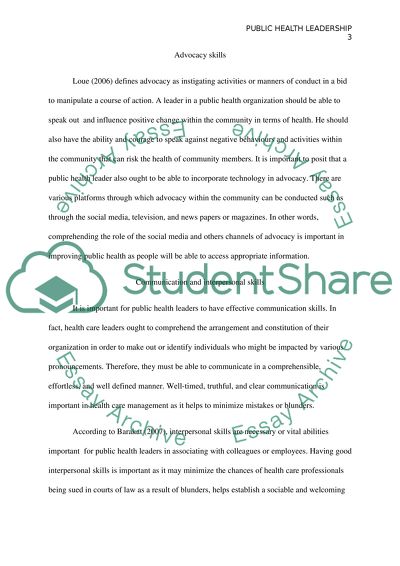Cite this document
(“Skills of a leader of a public health organization Term Paper - 1”, n.d.)
Retrieved from https://studentshare.org/nursing/1635993-skills-of-a-leader-of-a-public-health-organization
Retrieved from https://studentshare.org/nursing/1635993-skills-of-a-leader-of-a-public-health-organization
(Skills of a Leader of a Public Health Organization Term Paper - 1)
https://studentshare.org/nursing/1635993-skills-of-a-leader-of-a-public-health-organization.
https://studentshare.org/nursing/1635993-skills-of-a-leader-of-a-public-health-organization.
“Skills of a Leader of a Public Health Organization Term Paper - 1”, n.d. https://studentshare.org/nursing/1635993-skills-of-a-leader-of-a-public-health-organization.


